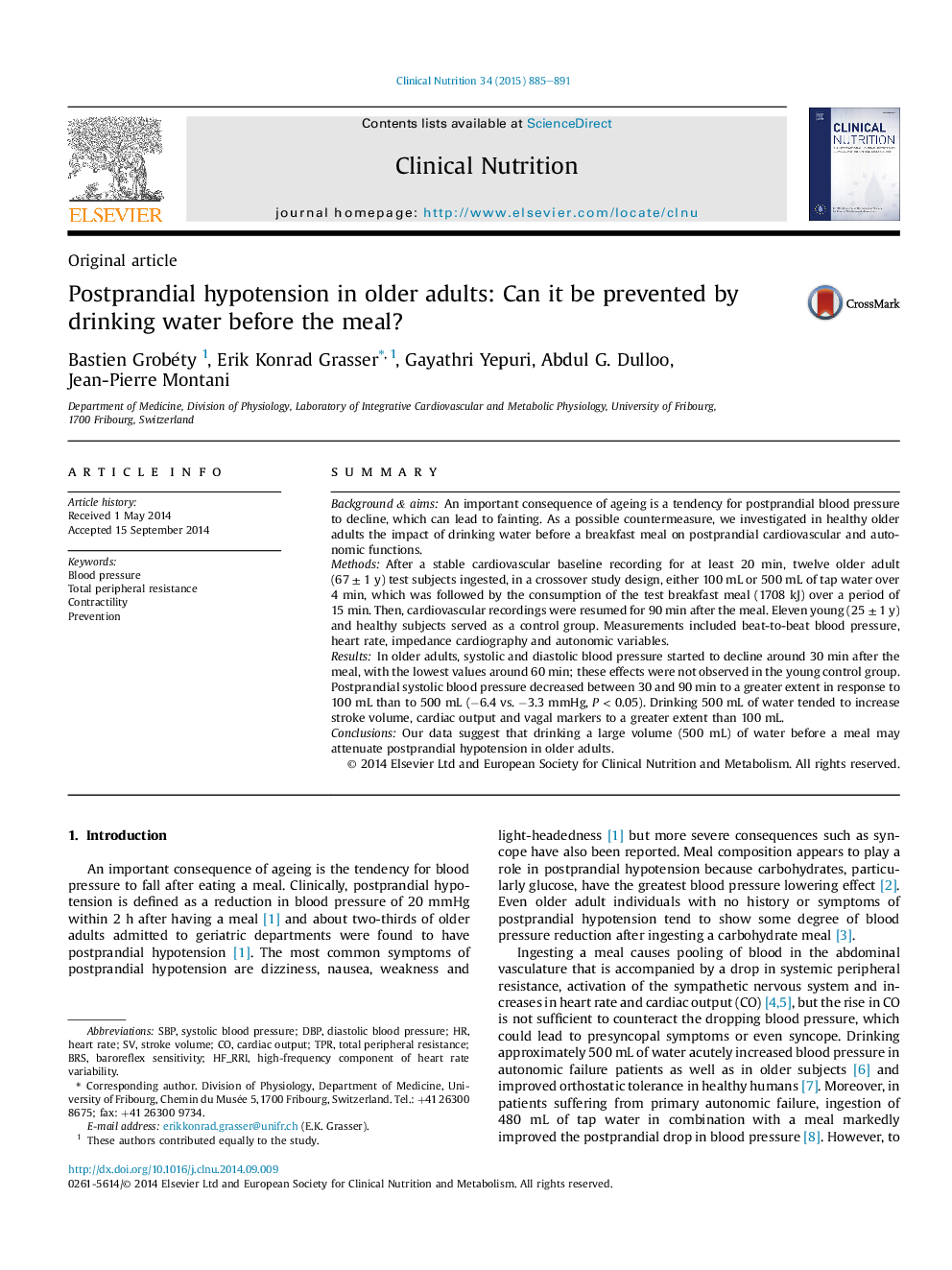| Article ID | Journal | Published Year | Pages | File Type |
|---|---|---|---|---|
| 5872577 | Clinical Nutrition | 2015 | 7 Pages |
SummaryBackground & aimsAn important consequence of ageing is a tendency for postprandial blood pressure to decline, which can lead to fainting. As a possible countermeasure, we investigated in healthy older adults the impact of drinking water before a breakfast meal on postprandial cardiovascular and autonomic functions.MethodsAfter a stable cardiovascular baseline recording for at least 20 min, twelve older adult (67 ± 1 y) test subjects ingested, in a crossover study design, either 100 mL or 500 mL of tap water over 4 min, which was followed by the consumption of the test breakfast meal (1708 kJ) over a period of 15 min. Then, cardiovascular recordings were resumed for 90 min after the meal. Eleven young (25 ± 1 y) and healthy subjects served as a control group. Measurements included beat-to-beat blood pressure, heart rate, impedance cardiography and autonomic variables.ResultsIn older adults, systolic and diastolic blood pressure started to decline around 30 min after the meal, with the lowest values around 60 min; these effects were not observed in the young control group. Postprandial systolic blood pressure decreased between 30 and 90 min to a greater extent in response to 100 mL than to 500 mL (â6.4 vs. â3.3 mmHg, P < 0.05). Drinking 500 mL of water tended to increase stroke volume, cardiac output and vagal markers to a greater extent than 100 mL.ConclusionsOur data suggest that drinking a large volume (500 mL) of water before a meal may attenuate postprandial hypotension in older adults.
